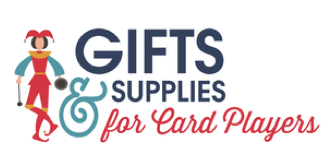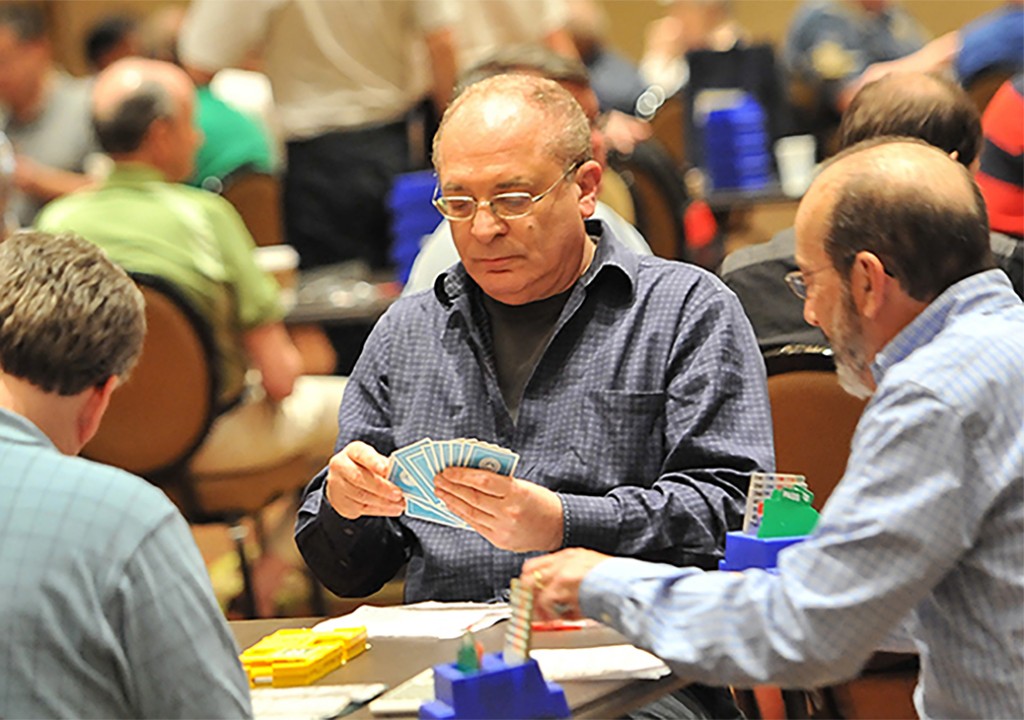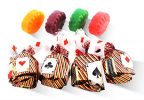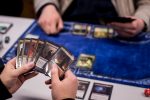Believe it or not you don’t have to have a good memory to be a bridge expert
by Jude Goodwin
With shout outs to The Bridge Guys, and BridgeWinners.
When I first took up the game of bridge I spent hours trying to discover ways to improve my memory, tricks to help me remember the cards, the conventions, the odds involved in the game. But after a few years of this diligence, I came to realize the game really had little to do with memory. Because when I was sitting at the table holding cards, if I was distracted or dreamy or anxious, my rote understandings of the game did little to help me play well.
Winning bridge is not about memory, it’s about focus and the ability to concentrate. “Concentration at the table is the number-one ingredient to playing well,” writes bridge expert and author Larry Cohen in his article Learning to Improve. “Logic is much more important than memory.”
It is said that as much as 50% of your success at the table depends on your ability to concentrate and focus on what is going on. Otherwise, you’ll miss important details. You’ll forget to count trump. You’ll forget what card your partner lead, or what card they played on the second round of your suit. You’ll forget what suit your LHO bid before partner’s 2NT.
Have you ever been driving your car on a route you’ve driven hundreds of times and suddenly realizes you’ve driven the past 8 minutes without even paying attention – that you took the right turn and the right lane without being conscious of it? Bridge can be like this, especially after you’ve played for many years. But playing in this ‘fog’ of muscle memory is what the experts are able to avoid and here are some tips that could help you do the same.
Barriers to concentration at the bridge table often comprise three basic forms: distractions, fatigue, anxiety.
Distractions
One evening at a weekly club game in the Kootenays, which was played in a room on top of a Legion, there was a fire in the lounge. Alarms blared and smoke drifted up into the room, but few people noticed, especially Ian who, after a careful auction, had landed in a 6NT contract that required a complicated endplay to make. Ian was so focussed on his hand it took someone physically pulling on his arm to get him out of the room.
Bridge player focus and concentration is legendary. But distractions can be your own worst enemy, and most of those distractions won’t come with alarm bells. They’ll be thoughts and worries that take up space in your brain, space which needs to be dedicated to the auction or play at hand. To avoid this:
1. Agree with your partner to save ALL DISCUSSION about the hands for later.
You might think it a simple enough thing to lightly address the result on a hand, but then your partner says something cryptic and you waste a good portion of the next hand wondering what they meant – or going over the play to see if they are right – or whatever! Don’t do it. Lots of time later to discuss the hands and you can do it sitting in a nice comfy chair with a cold drink in your hand.
2. Let go of the last board and move on.
Train yourself to let the last board, whatever its results, pass out of your head so you can focus on the next hand. Worrying about the past result, your play, the bidding, or trying to revisit the play of the cards in your mind will cloud your focus for the cards you are currently sorting in your hand. I’ve heard that some people have an ‘end of hand’ mantra which they use to remind themselves to let the last board go and move on. Or maybe you have an elastic on your wrist and you’ll snap it just as you pull the cards out for your next hand to remind you to focus. I’ve seen many ‘gamer’ opponents make small obscure comments on a past hand just as you’re pulling out the cards for a new hand. This is deliberate and designed to distract you. Don’t let it happen!
3. Keep chit chat between hands to a minimum.
If you’ve ever kibitzed expert bridge players you’ll notice there is very little, if any, chit chat between hands. Keep your head clear of social distractions. It’s startling how quickly your mind can get caught up in some small comment, or gossip, or whatever, when it should be concentrating on the game. There’s lots of time for socializing after the game.
Fatigue
The brain has trouble concentrating when it’s tired. One year at a regional in Victoria BC Canada we had unknowingly booked a hotel room across the street from a construction site. We had arrived for the weekend and played in a Midnight Swiss, finding our way through the dark streets to our beds around 3:00 am. The construction, which featured massive jackhammers, began at 7:00 am. I remember at one point in desperation sleeping on the floor of the bathroom with the bathtub running. The next day, my concentration was not good. So ya, be sure you get enough sleep!
However, your brain can feel fatigued even if you’ve had a good night’s sleep. Although studies have shown the connection between thinking too hard and being worn out seems to be entirely in our heads, there are things we can do to avoid brain fatigue.
1. Don’t spend too much time on the easy hands.
This is good advice because bridge is a timed event and you don’t want to use up all that time on an easy hand. But also, allowing your brain to coast now and then will help prevent fatigue.
When my bridge partner and friend Rob learned about squeezes he wanted to find one in every hand. Even the most routine 4 Spades could take him 20 minutes to play. Back then we were all smokers, and had ashtrays on the table. It wouldn’t be unusual to have three cigarettes done by the time Rob would suddenly sit up and say AhHa! then proceed to play off the cards successfully engineering some kind of squeeze.
The point of course is that this is a lot of mental toil that wasn’t quite needed! If you can see your hand is straight forward, play it that way. And claim when you can. Don’t put your opponents through the ringer.
2. Relax when you are dummy.
We all do it – watch partner’s play to every card in dummy, try to guess the opponents’ play, try to figure out what’s going to happen. This is using up so much brain energy! But it’s hard, you say, to not pay attention when you don’t know whether you’re in the right spot or not! Truth is, it will make no difference if you’re watching or not watching. Take advantage of being dummy and take a mini brain break.
A friend of mine, Peter Cooper, invented a little device years ago called the Cooper Echo that was designed to set Dummy’s mind at ease so they could relax and give their brains a rest. Let’s say you and partner have had an exciting auction and he is declaring a high-level contract. You are dying to know if it’s going to make, and you are wasting valuable brain energy and adrenaline watching his play. The Cooper Echo is a high-low play from dummy that lets you know that the contract is a good spot. For example, declarer is playing some rounds of a suit and plays the 8 in the first round and the 4 on the second round. There’s no real reason for this so it must be a Cooper Echo! As dummy you can now relax, sit back, and put your mind at rest. Once during a tournament in Spokane, I was declaring a slam across from Julie Cooper, Peter’s wife, and I gave her a mis-judged Cooper Echo after which I went down 3 doubled for a bottom board. “What?!” she exclaimed. “You psyched a Cooper Echo?”
3. Look for green.
In Psychology Today’s article 4 Things to Do When Your Brain is Tired it is recommended that you look out the window at nature if you can. “Just one minute of looking at grassy rooftops reduced errors and improved concentration” the article notes. It might be a garden, a forest, a lawn – try to find something green. If you’re in a playing area ballroom with no windows, sometimes you can simulate the effects with scent.
When the six members of the England women’s bridge team won gold medals at the World Mind Sports Games, they admitted in an interview that they used a dab of Lavender Oil to calm their nerves and improve concentration.
Hypnotists have long known that convincing a person they are sleepy is often as easy as making their eyes tired. They use dangling, swinging objects and ask the client to follow it with their eyes until the eyes tell the brain you’re tired. Changing your visual range, such as looking out a window, can help refresh your eyes and avoid feelings of fatigue. Or if there is no window in your playing area, look up and out over the playing site now and then, focusing on something on the far wall.
4. Stand up.
In an article we posted a few weeks back, the importance of standing up periodically throughout a bridge game is illustrated. Standing and perhaps walking a bit will help your systems to recharge. Read more here >
5. M&Ms.
Too much junk food sugar can result in overall brain fog. Be sure to eat healthy while attending bridge tournaments! However, a packet of M&Ms could come in handy at the table. A good dose of glucose does boost brain performance especially when fatigue has become a factor.
Anxiety or Stage Fright
As a tournament bridge player my biggest challenge has always been my own anxiety. I remember at an NABC one year my women’s team had made it into a qualifying stage and up until that moment I had played well and confidently. Then I found myself at a table with some of the most famous women players in the world and suddenly my anxiety exploded. My brain fogged over, I had no ability to remember auctions or the play of cards, much less come up with intelligent creative play. It was awful. If this kind of thing ever happens to you, here are some techniques that might help.
Before the Match
Relax your body. Stretch, take a walk, laugh. These will all help you ready yourself for the big match.
Drink Citrus Juice half an hour before game time to lower your blood pressure. In fact, make that part of your ‘ritual’ before a big match. Rituals can help put your psyche into a rhythm that will keep you focussed. A drink, lucky socks, a motivational quote – you can devise your own personal ritual. Oh, and they say eating a banana before game time will help keep your tummy settled.
Visualize. It’s well known now that if you ‘fake it’ you can actually ‘make it’ happen. If you visualize yourself winning, being congratulated by friends, hugs from teammates, interviews with the World Bridge Federation for their youtube channel. Even if you’re not feeling confident, you can act like you’re the best in the world. Fake confidence. Believe it or not, most of the people you admire are actually faking their confidence or have learned how to look and act confident even when they are quaking inside.
At the Table
Act and look Confident
Do not slouch. Good posture exudes confidence. Slow down. If you’re nervous you breath more quickly, talk more quickly, everything speeds up. Take a moment to control your breathing and slow things down. Smile. When you’re feeling anxious and nervous, you’re probably looking like it too. Try to think of something that makes you smile.
Your breath
The impact on anxiety can have on your concentration is often due to hyperventilation of some kind. You’re breathing in a way that cuts off some of the blood flow to your brain. If you realize this is happening, you can take control by making sure you take at least 5 seconds to breath in, hold for 2 seconds, then take at least 7 seconds to breath out.
Don’t Panic
If you make a mistake don’t panic! You don’t really know how it’s going to affect the whole match – maybe the same mistake was made at the other table, or maybe your mistake was the one that wins the board for you, or maybe it wasn’t even a mistake. This is not the time to sort all that out. And anyhow, there are many opportunities to recover. Take a deep breath or grab a stick of chewing gum, a drink of water, recite a poem or mantra to yourself, let it go and move on.
Practice practice practice
This is my final piece of advice and it’s a big one. The more you play, the better you’ll get at concentrating at the bridge table. This is because you will develop and build confidence. My anxiety used to bother me at club games. Then it didn’t, but it bothered me at a sectional tournament. Then it didn’t, but it bothered me at regional tournaments. You see, the more I played at the different levels, the more relaxed and confident I could be.
Practice so you will feel confident of your abilities. Practice so you will be more accustomed to playing at different levels. Challenge yourself by playing against experts as much as you can. And practice that smile!
Thank you to Casinos in Australia for their generous sponsorship of this article and Great Bridge Links.





